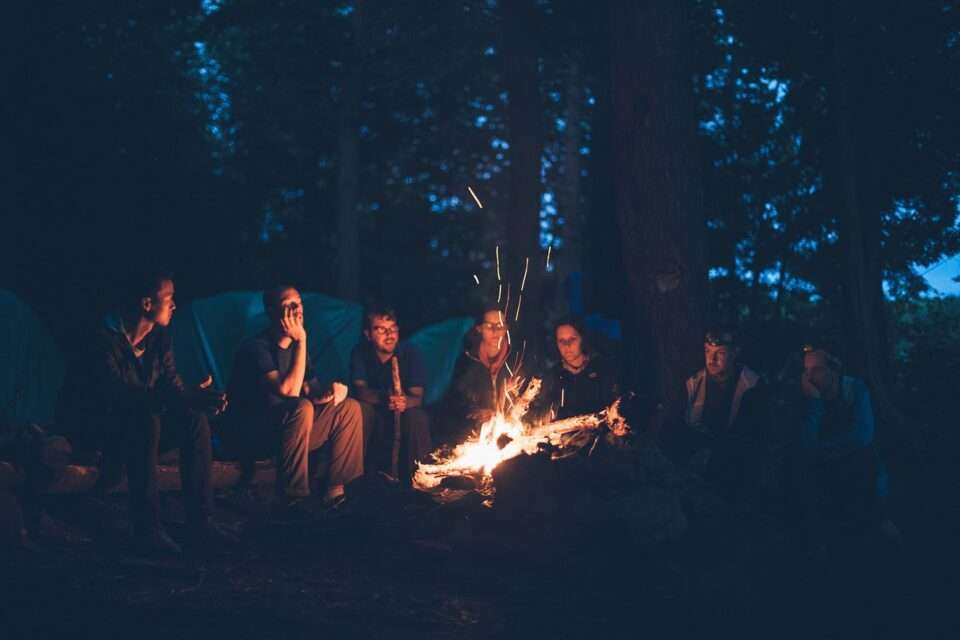“The wilderness holds answers to questions we have not yet learned to ask.” -Nancy Wynne Newhall.
An escape from life’s daily hustle and bustle sounds like an enticing prospect.
The idea of unplugging from your daily routine, immersing yourself in nature, rejuvenating your soul, and connecting with people who matter are all things that make for a good escape. That said, camping is a way to do all these.
In more ways than one, camping and getting out in nature is self-care. It allows you to disconnect from the world and focus on the things that matter. It is also a fantastic way to explore the great outdoors, spend quality time with family and friends, and get fresh air. However, spending the night in the wilderness can seem daunting and a bit overwhelming for individuals yet to try the activity. However, this article serves to address that with a list of indispensable tips for a first camping trip for beginners like you. So, before you dive into campsites near Manila or look through a campsite directory Philippines, take a gander at this list to make your first camping trip memorable and enjoyable.
1.) Choosing a Campsite
Today, your choices for campsites are rather overwhelming—it all depends on where you want to go. For those who wish to inject a little tropical vibe into their camping getaway, there are plenty of beach camping spots in the Philippines. On the other hand, campers who do not wish to drive too far can always look for nearby campsites in Tanay. Indeed, there is no shortage of campsites available for your first-time camping. However, you do need to know what to look out for. Are you bringing your kids? Do you want to take your furry friends with you? Are there facilities such as toilets and showers? These are the questions you should be asking before finalizing your booking. As a beginner, it is imperative to book a campsite that comes with high-quality facilities. Ideally, you should also book a campsite with a town nearby to mitigate the need for cooking as there are plenty of places to eat and buy supplies from should you forget something at home.
2.) Buying a tent
A camping tent is one of the most indispensable camping equipment a camper can have. Tents come in all shapes and sizes, so choose one that suits you and your needs. Pick a tent that is at least a size or two bigger than the number of people that will be sleeping in it, as it will have enough room for you to wiggle around and have extra space for your gear.
3.) Purchasing sleeping bags
Even if you have a tent, having your own sleeping bag is still a good idea, as temperatures can drop drastically at night. Sleeping bags can help you keep warm; just be sure to choose one ideal for all sorts of weather and temperatures.
4.) Practice pitching your tent
Before leaving for camp, it is recommended that you practice pitching your tent in your backyard. This is one of the most indispensable and important tips to keep in mind as it will ensure you know how to put up and take down the tent by the time you are at the campsite. More importantly, it will help you check for any problems beforehand and solve them at your own convenience at home.
5.) Conduct a practice camp
Have a practice camp at home to ease into the camping activity and allay your apprehensions about sleeping in the wilderness. As camping can be an intimidating outdoor activity for beginners, spend the night in the garden or backyard. In this way, you can gauge your feelings for the activity and determine if your equipment is adequate.
6.) Setting up at the campsite
When you set up and pitch your tent, choose an area where the ground is level and clear of debris that could potentially damage your tent. Next, scout the campsite and look for a prime site. Also, be sure to put the back of the tent to the wind and put the tent pegs into the ground at a 45-degree angle. In this way, your tent has more stability.
7.) List your camping essentials
Creating a list of camping essentials helps you make sure that you leave nothing behind the day you leave for camp. Understandably, camping can be quite challenging for beginners—especially if you are unsure of the type of equipment you need. To ensure you have everything, check for camping equipment guides online and curate your own list of equipment to bring to camp.
8.) Plan meals beforehand
Save yourself the time and hassle of determining what to eat by planning what you will eat and how you will prepare it beforehand. Also, check the campsite rules to see if campfires or grilling is allowed. Finally, if you do not plan on cooking meals, research the area and see if there are any restaurants and eateries nearby.

